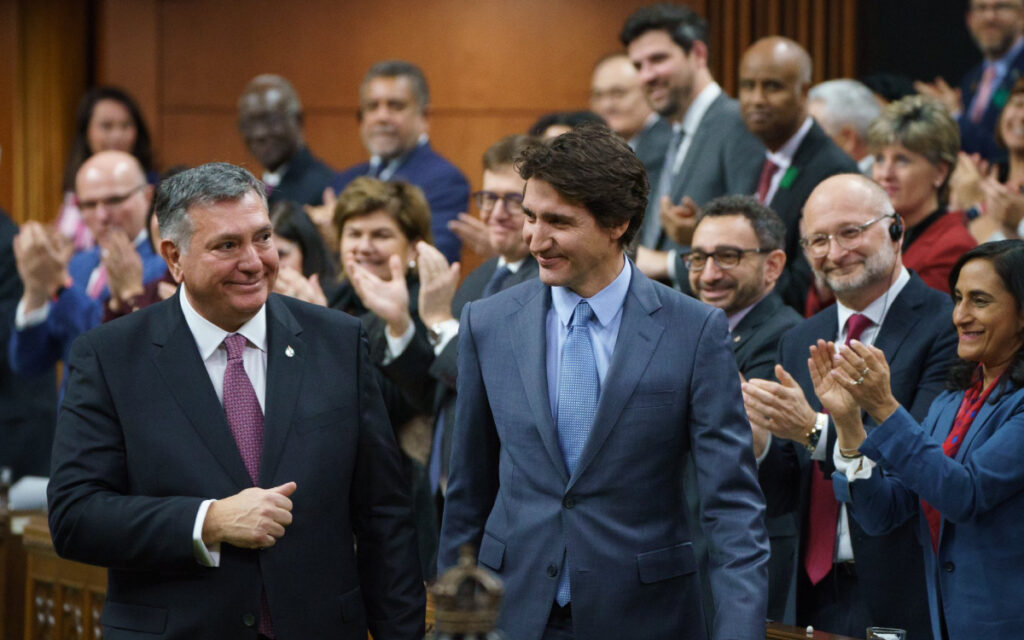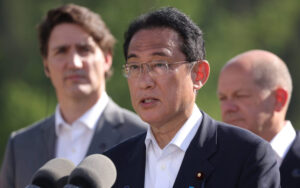
While a series of eleventh-hour amendments significantly watered down the original NDP motion and saved the Liberal government from having to deal with the fallout of a wedged caucus, the cracks in the foundation were plain as day for anyone to observe. Photo Credit: Justin Trudeau/X.
Imagine for a moment that you’re the Prime Minister of Canada. Despite best efforts and traversing from one coast to the other to make seemingly endless funding announcements, nothing you say or do is breaking through. Subsequently, you watch the opponent who represents everything you so ardently stand against gain momentum, with a commanding lead in the polls.
Factor in a supply-and-confidence agreement that is dictating major policy outcomes, you have to wonder if Trudeau is reminiscing about days when he too was the leader of an opposition party. No doubt, things were a whole lot easier when the act of simply signaling an intention was enough to calm a restless few caucus members and Liberals alone were responsible for their fortunes.
But times have changed. Long gone are the days of balancing babies and selfie lines. In fact, Trudeau is lucky if he can enter through the front door due to the protests that have disrupted several of his recent events.
It’s been a tough slog lately and the goings on in the House of Commons serve as a stark reminder that things are not going well for the Liberal Party. The minutiae of hanging onto power is arguably Trudeau’s biggest preoccupation at any given minute.
No party is immune to caucus disagreements, but not all issues bear equal weight. Former Conservative Leader Erin O’Toole’s undoing was the issue of vaccine mandates championed by the convoy. Despite best efforts to bring together his fractured caucus members with a rallying call centered around party unity, there was no path forward for O’Toole to carry on at the helm of the ship.
Trudeau is in a similar boat when it comes to reconciling the opinions of his caucus on the Palestine-Israel conflict. So divided is the caucus that some members were willing to vote in favour of a motion that would, on paper, overturn a decades old stance on foreign policy to unilaterally recognize Palestine as a state.
While a series of eleventh-hour amendments significantly watered down the original NDP motion and saved the Liberal government from having to deal with the fallout of a wedged caucus, the cracks in the foundation were plain as day for anyone to observe.
For anyone making the argument that these types of motions are non-binding, the government has already adjusted some of its policies in line with the motion’s text. On Tuesday, the foreign affairs minister announced that Canada would ban arms exports to Israel.
The Liberals also made a move recently to reinstate taxpayer dollars to a UN aid agency that is under investigation because of its employees’ suspected involvement in the October 7th attack on Israel.
Much like in the case of the Conservative positioning on vaccine mandates, there is no winning message that will bridge the gap in the Liberal caucus. We are instead left with a governing party who is attempting to appease both sides of the equation, while horse trading with the NDP who hold just 21 seats in the House of Commons, on the details of Canada’s foreign policy.
This may seem inconsequential in the short term, but it is sure to have lasting impacts in future history books.

Josie Sabatino is a Senior Consultant at Summa Strategies, focused on providing strategic insight and helping clients meet their objectives in an ever changing and complex political and regulatory environment. Prior to joining Summa, Josie spent nearly a decade in political communications and most recently served as the Director of Communications to the Hon. Erin O’Toole, former Leader of the Official Opposition.




















